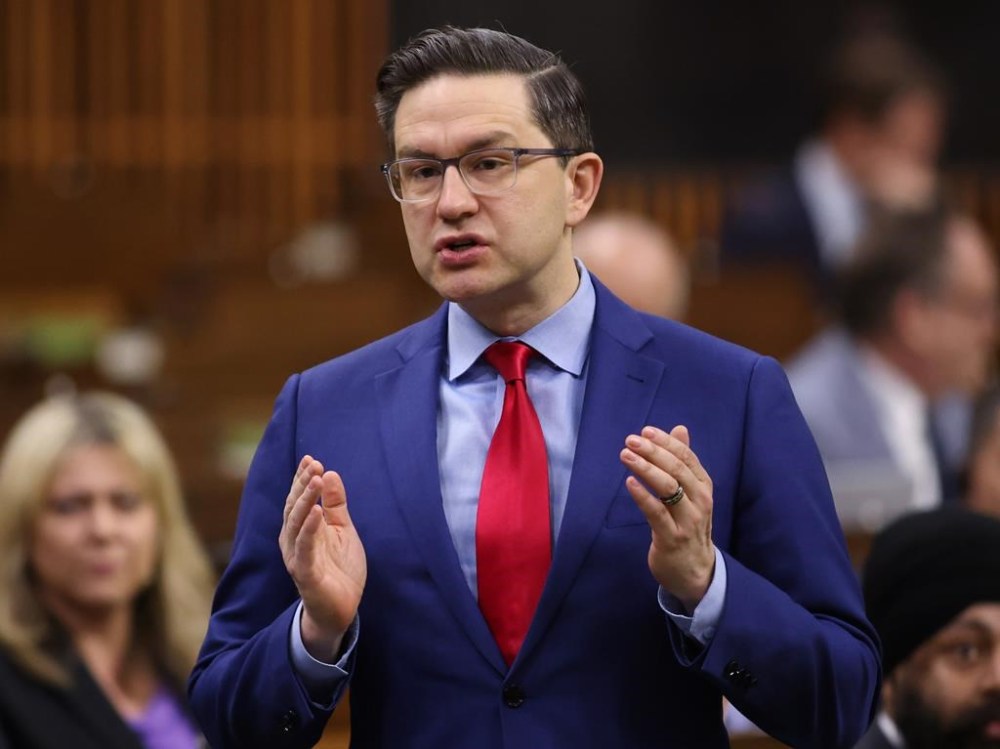Conservatives ask Twitter to label CBC accounts as ‘government-funded’ media
Advertisement
Read this article for free:
or
Already have an account? Log in here »
To continue reading, please subscribe:
Monthly Digital Subscription
$0 for the first 4 weeks*
- Enjoy unlimited reading on winnipegfreepress.com
- Read the E-Edition, our digital replica newspaper
- Access News Break, our award-winning app
- Play interactive puzzles
*No charge for 4 weeks then price increases to the regular rate of $19.95 plus GST every four weeks. Offer available to new and qualified returning subscribers only. Cancel any time.
Monthly Digital Subscription
$4.99/week*
- Enjoy unlimited reading on winnipegfreepress.com
- Read the E-Edition, our digital replica newspaper
- Access News Break, our award-winning app
- Play interactive puzzles
*Billed as $19.95 plus GST every four weeks. Cancel any time.
To continue reading, please subscribe:
Add Free Press access to your Brandon Sun subscription for only an additional
$1 for the first 4 weeks*
*Your next subscription payment will increase by $1.00 and you will be charged $16.99 plus GST for four weeks. After four weeks, your payment will increase to $23.99 plus GST every four weeks.
Read unlimited articles for free today:
or
Already have an account? Log in here »
Hey there, time traveller!
This article was published 12/04/2023 (1002 days ago), so information in it may no longer be current.
OTTAWA – The Opposition Conservatives are asking Twitter to apply a “government-funded” label on accounts associated with the CBC, even as other broadcasters decry the tag for not making clear their editorial independence.
On Tuesday, Conservative Leader Pierre Poilievre tweeted a copy of a letter addressed to the company making the request.
In the letter, Poilievre asked that the label be applied to CBC’s English “news-related” accounts. But he did not mention Radio-Canada, the broadcaster’s French-language arm.

The social-media giant currently defines “government-funded” media as outlets that “may have varying degrees of government involvement over editorial content.”
Poilievre said he believes that applies to CBC.
But CBC said in a statement on Wednesday that is “clearly not the case,” adding that it cannot comment on the motives behind Poilievre’s letter.
“As every Canadian knows, CBC/Radio-Canada is publicly funded. Its editorial independence is protected in law in the Broadcasting Act,” a spokesperson for the broadcaster said.
The office of Heritage Minister Pablo Rodriguez said the way the broadcaster’s public funding works, members of Parliament only vote on the sum of money it receives — they don’t guide its editorial decisions.
“It is an independent, arms-length Crown corporation,” said Laura Scaffidi, Rodriguez’s press secretary.
She called Poilievre’s comments an “attack on journalists.”
Other media outlets have raised concerns about the difference between phrases such as “government-funded” and “publicly funded” and what each implies.
After initially labelling BBC and National Public Radio as “state-affiliated” — a term usually reserved for government-run propaganda outlets in countries such as Russia and China — the platform shifted its language to “government-funded.”
With the British broadcaster continuing to find fault with that phrasing, Twitter made yet another change on Wednesday to call the BBC “publicly funded.”
Elon Musk, who owns the platform, had promised the shift in approach during an interview with BBC on Twitter Spaces on Tuesday.
Musk said that if Twitter used “the same words that the BBC uses to describe itself, that presumably would be OK,” and that he respects the broadcaster, which is funded by the British public through a licensing fee.
FRIENDS, a public broadcasting advocacy group, said Poilievre seems to have zero qualms about comparing CBC to the likes of Russia’s Sputnik TV.
“These tactics are irresponsible, dangerous and undermine the democracy that public institutions like CBC/Radio-Canada are desperately trying to uphold.”
NPR announced Wednesday that it would quit using Twitter after its accounts were inaccurately labeled. The United States public radio outfit said its credibility was being undermined by the platform “falsely implying that we are not editorially independent.”
NPR does receive U.S. government funding through grants from federal agencies and departments, along with the Corporation for Public Broadcasting. But the company said that accounts for less than one per cent of NPR’s annual operating budget.
“We are not putting our journalism on platforms that have demonstrated an interest in undermining our credibility and the public’s understanding of our editorial independence,” a spokesperson for NPR said Wednesday in a statement.
It’s the first major news outlet to make such a decision following Musk’s takeover of Twitter last year, with the social media company facing new scrutiny over how it filters out the spread of false information.
The platform also recently stripped the New York Times of its verification check mark, with the newspaper saying it would not pay a monthly fee to maintain it.
CBC said it hasn’t made a decision yet on whether it will continue to use Twitter if the company decides to label it as “government-funded,” saying it cannot comment on hypotheticals.
In 2021-22, the CBC received more than $1.2 billion in government funding, a decrease from about $1.4 billion in 2020-21.
CBC also makes money through advertising, subscriptions and syndication.
This report by The Canadian Press was first published April 12, 2023.
— With files from the Associated Press.





